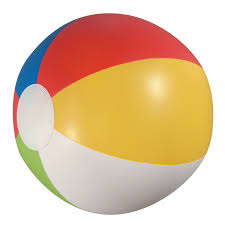ball
英 [bɔːl]
美 [bɑːl]
- n. 球;舞会
- vi. 成团块
- vt. 捏成球形
- n. (Ball)人名;(土)巴勒;(英、西)鲍尔;(法、德、俄、罗、捷)巴尔
使用频率:

记忆方法
将“ball”想象成一个圆形的物体,可以将其与“ball pit”或“ball game”的场景联系起来,帮助记忆它的含义为“球”。同时,通过重复使用这个单词在句子中来加强记忆,例如:“I played with a ball.”(我玩了球。)
以上内容由AI生成, 仅供参考和借鉴
中文词源
ball 球,跳舞
1.球,来自PIE *bhel(2), 膨胀,鼓,词源同bawl, 碗。
2.跳舞,来自PIE *gwele, 扔,投,见ballistics. 最早的舞蹈通常与狂热的宗教仪式相关,因而词义由扔,投过渡到舞蹈。
英语词源
- ball
-
ball: There are two distinct words ball in English. The ‘round object’ [13] comes via Old Norse böllr from a prehistoric Germanic *balluz (source also of bollock [OE], originally a diminutive form). A related form was Germanic *ballōn, which was borrowed into Italian to give palla ‘ball’, from which French probably acquired balle.
Derivatives of this branch of the family to have reached English are balloon [16], from French ballon or Italian ballone, and ballot [16], from the Italian diminutive form ballotta (originally from the use of small balls as counters in secret voting). The Germanic stem form *bal-, *bul- was also the ultimate source of English bowl ‘receptacle’.
The ‘dancing’ ball [17] comes from French bal, a derivative of the now obsolete verb bal(l)er ‘dance’, which was descended via late Latin ballāre from Greek ballízein ‘dance’. Related words in English include ballad(e) [14], which came via Old French from Provençal balada ‘song or poem to dance to’, and ballet.
=> ballon, ballot, bollock; ballad, ballet - ball (n.1)
- "round object," Old English *beal, from or corresponding to Old Norse bollr "ball," from Proto-Germanic *balluz (cognates: Old High German ballo, German Ball), from PIE root *bhel- (2) "to blow, inflate, swell" (see bole).
Meaning "testicle" is from early 14c. Ball of the foot is from mid-14c. A ball as an object in a sports game is recorded from c. 1200; To have the ball "hold the advantage" is from c. 1400. To be on the ball is 1912, from sports. Ball-point pen first recorded 1946. Ball of fire when first recorded in 1821 referred to "a glass of brandy;" as "spectacularly successful striver" it is c. 1900. - ball (n.2)
- "dancing party," 1630s, from French, from Old French baller "to dance," from Late Latin ballare "to dance," from Greek ballizein "to dance, jump about" (see ballistics). Hence, "very enjoyable time," 1945, American English slang, perhaps back to 1930s in black slang.
- ball (v.)
- 1650s, "make into a ball," from ball (n.1). Sense of "to become like a ball" is 1713; that of "to copulate" is first recorded 1940s in jazz slang, either from the noun sense of "testicle" or "enjoyable time" (from ball (n.2)). Related: Balled; balling.
权威例句
- 1. The ball fell straight to the feet of Klinsmann.
- 球直接落到了克林斯曼的脚上。
- 2. This little ball of gold weighs a quarter of an ounce.
- 这个小金球重0.25盎司。
- 3. Dave pulled a back muscle and could barely kick the ball.
- 戴夫背部拉伤,几乎没法踢球。
- 4. Your partner should then pass the ball back to you.
- 然后你的搭档应该将球回传给你。
- 5. The ball is made of rattan — a natural fibre.
- 这个球是由一种天然纤维——省藤制成的。